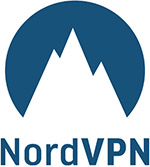This article has been just updated: January 16, 2024
It’s never easy to decide between two competing VPN providers, especially when they’re both are considered to be excellent. Today, we’ll be comparing Private Internet Access (PIA) and NordVPN to see what their strengths and weaknesses are, helping you decide which of them is the best choice for you.
Private Internet Access
Launched in 2010, Private Internet Access, commonly referred to simply as PIA, is a personal virtual private network (VPN) service that’s based in the United States. It offers an attractively priced VPN service with solid performance, but it has been criticized for choosing the United States as its home country.
NordVPN
NordVPN is a large VPN service that has received a lot of prestigious industry awards since its launch in 2012. Unlike PIA, NordVPN is based in Panama, which is a huge advantage because Panama isn’t a member of the Five Eyes (Australia, Canada, New Zealand, the United Kingdom, and the United States) or Fourteen Eyes (Five Eyes + Denmark, France, Netherlands, Norway, Germany, Belgium, Italy, Sweden, and Spain) alliances.
Security
When it comes to VPN services, nothing is more important than security. Here, NordVPN immediately has a huge advantage because the service is based in Panama, a neutral country that doesn’t have any mandatory data retention laws.
The United States, where PIA is based, is a poor jurisdiction when it comes to privacy because of its mass surveillance practices, which were revealed in a series of global surveillance disclosures by Edward Snowden and other whistleblowers.
Does it really matter that the government of the United States could contact PIA at any moment and ask the company to hand over the activity logs of its customers? That depends largely on why you want to use a VPN in the first place.
Many people use a VPN service just to get a fake IP address to circumvent geo-restrictions and other forms of content blocking. In that case, it doesn’t matter at all that PIA is based in the united states. Still, it’s better when you can trust your VPN provider 100 percent, which is why NordVPN is a clear winner in this category.
![]() Winner: NordVPN
Winner: NordVPN
Features
NordVPN is a feature-packed VPN service that offers a lot more beyond basic traffic encryption. Thanks to Double VPN, NordVPN users can encrypt their traffic twice, hiding their online traffic behind an unbreakable shield that even the most sophisticated cyber attackers won’t be able to get past.
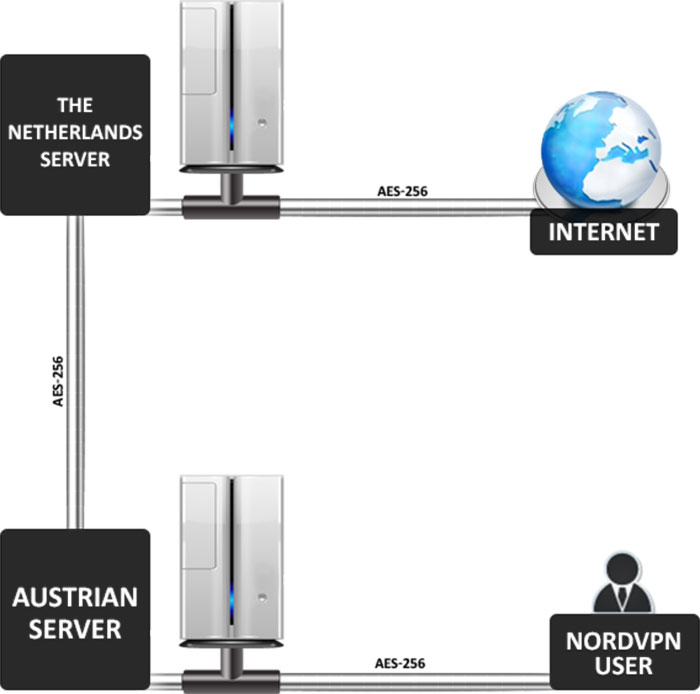
If that’s not enough for you, you can utilize the Tor network, which is a volunteer network for enabling anonymous communication over the internet, to make it absolutely impossible to discover your real IP address. The only downside is that your speeds will go down considerably.
There’s also an effective built in ad-blocker called CyberSec, which automatically blocks dangerous websites so that no malware can infect your device. The main advantage of CyberSec compared with various ad-blocking web browser extensions is the fact that CyberSec won’t slow down your computer or mobile device.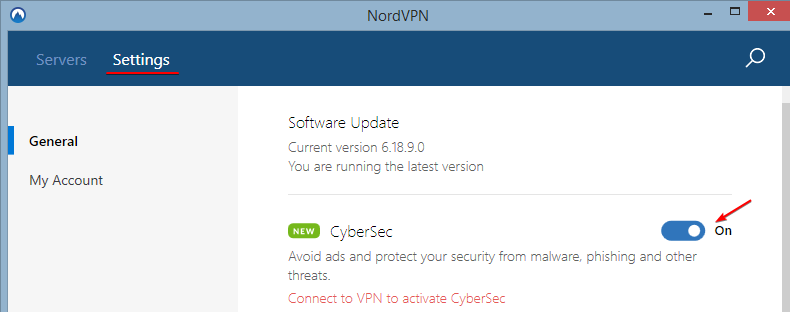
PIA has an ad-blocking feature as well, called PIA MACE. According to PIA’s knowledge base, MACE is a system developed to help protect its customer’s privacy and security by returning IP addresses of unwanted domain names as an address that’s not routable on the public internet. In other words, MACE can block both ads as well as malicious websites.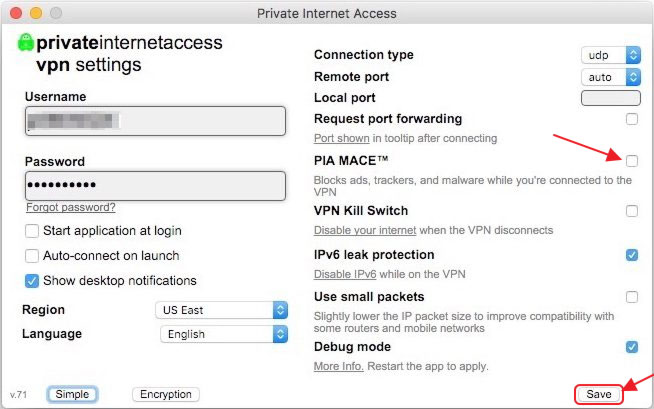
Apart from basic IP address leak protection, PIA doesn’t have too many extra features, which shouldn’t come as a surprise considering that this is a low-cost VPN service we’re talking about.
![]() Winner: NordVPN
Winner: NordVPN
Speed
Private Internet Access has over 3,300 servers in 33 countries, which allow it to offer decent, if somewhat variable, speeds.
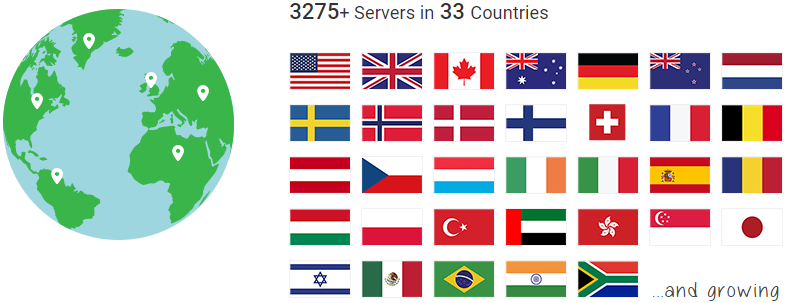
NordVPN has even greater global coverage, maintaining a small army of over 5,200 servers in 62 countries. As you might expect, NordVPN is faster than PIA, but the difference isn’t huge.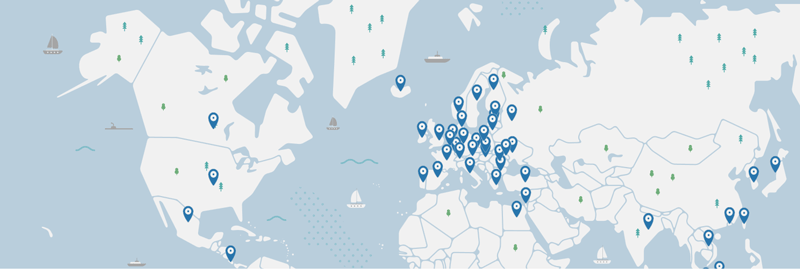
If you’re an online gamer or someone who depends on a fast internet connection, you should go with NordVPN just so you can be as close to your VPN server as possible. However, if you want a VPN mostly for browsing the web in private, PIA is a great choice as well.
![]() Winner: NordVPN
Winner: NordVPN
Pricing
NordVPN is widely regarded as the best affordable VPN service out there. We’ve already mentioned some of its numerous features, but we have yet to mention that it costs just $2.99 a month. That’s right, just $2.99 a month for a VPN service with over 5,200 servers, support for the Tor network, and many other perks that are almost impossible to come by in this price range.
Yes, almost is the right word because there’s also PIA, which starts at only $2.91 a month when you pay for two years of service upfront. If you’d rather pay monthly, the price jumps up to $6.95, but that’s still nothing compared with the monthly price of NordVPN, which is $11.95.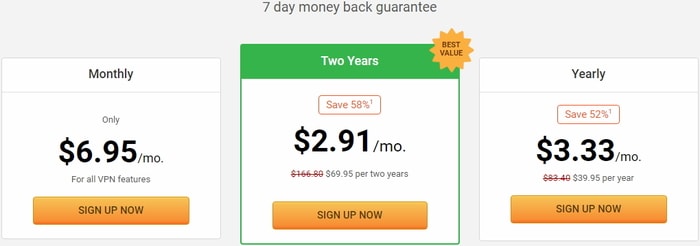
![]() Winner: Private Internet Access
Winner: Private Internet Access
Customer Support
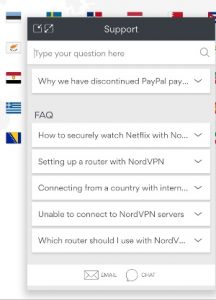 In the past, NordVPN was often criticized for providing poor customer support, but the service has really stepped up its game in recent years, and it now offers multiple customer support channels as well as an excellent knowledge base where you can learn everything about all things VPN-related.
In the past, NordVPN was often criticized for providing poor customer support, but the service has really stepped up its game in recent years, and it now offers multiple customer support channels as well as an excellent knowledge base where you can learn everything about all things VPN-related.
Besides email support, NordVPN also offers live chat, which comes in handy when you don’t have time to wait for your email to get answered. Overall, NordVPN’s customer support staff is friendly, knowledgeable, and generally a pleasure to deal with.
Being a budget-friendly VPN service, PIA had to cut down its operational costs somewhere, and the choice fell on customer support, which is handled entirely via a ticket system. The good news is that PIA makes up for the lack of email and chat support with its comprehensive knowledge base and detailed tutorials.
![]() Winner: NordVPN
Winner: NordVPN
Verdict
In this detailed comparison, we’ve highlighted the main advantages and disadvantages of Private Internet Access and NordVPN. If you’ve been paying attention so far, you won’t be surprised to learn that NordVPN has emerged as a clear winner, beating Private Internet Access in every single category except for the price, where the two VPN services are neck and neck.
FAQ
What are the main differences between Private Internet Access (PIA) and NordVPN?
One primary difference is their server network size: PIA has a larger number of servers, while NordVPN offers servers in more countries. NordVPN also includes features like Double VPN and Onion over VPN, which are not available with PIA. Additionally, NordVPN is based in a privacy-friendly location (Panama), which is an advantage over PIA, which is US-based.
How does the pricing for PIA and NordVPN compare?
Both PIA and NordVPN offer multiple subscription options, typically with the best value on longer plans. Generally, PIA has been known to be more competitively priced, especially on its yearly plans, whereas NordVPN may be slightly more expensive but offers more advanced features which might justify the higher cost.
Can I expect reliable customer support from both PIA and NordVPN?
Yes, both providers offer reliable customer support with 24/7 live chat options. Users generally report a satisfactory experience with both services with professional and prompt responses to inquiries and issues.
In terms of internet speed, which VPN service typically performs better?
Speed can vary based on many factors, but NordVPN is often cited as one of the fastest VPN services thanks to its NordLynx protocol, a WireGuard-based solution that combines speed and security. However, PIA also provides decent speeds that are suitable for most online activities.
Do both PIA and NordVPN provide a kill switch feature?
Yes, both PIA and NordVPN include a kill switch feature, which is essential for preventing data leaks if the VPN connection drops unexpectedly.
Are there any distinct security features that set NordVPN and PIA apart?
NordVPN stands out with its unique security features such as CyberSec, which provides extra malware protection and ad blocking. On the other hand, PIA focuses on strong encryption and an extensive range of customizable settings for advanced users.
How user-friendly are the interfaces of PIA and NordVPN?
Both VPNs offer user-friendly interfaces, but they cater to different user bases. NordVPN has a more streamlined and intuitive interface suitable for beginners, whereas PIA offers a more customizable experience that might appeal to tech-savvy users.
Is there any significant difference in device compatibility between PIA and NordVPN?
Both PIA and NordVPN support a wide range of devices including Windows, macOS, Linux, iOS, and Android. They also offer browser extensions and compatibility with various routers. The main difference may be in the ease of setup and the user experience on each platform.
Do PIA and NordVPN both support streaming services like Netflix?
Yes, both PIA and NordVPN can unblock various streaming services, including Netflix. However, NordVPN generally has a better track record for consistently accessing more regional Netflix libraries and other streaming platforms.
Is torrenting allowed on both PIA and NordVPN networks?
Yes, both VPN services allow P2P file-sharing and torrenting on their networks, with NordVPN offering specialized P2P servers and PIA supporting torrenting on all its servers.
What is the logging policy of PIA versus NordVPN?
Both PIA and NordVPN have strict no-logs policies, ensuring that they do not store any user data or activity. However, NordVPN has the added advantage of having had its policy independently audited multiple times.
How do the encryption standards of PIA and NordVPN compare?
Both VPN services employ AES-256 encryption, which is considered the industry standard for its balance of speed and security. They both also offer multiple protocols to choose from, including OpenVPN and WireGuard.
Can I connect to specialized servers with both PIA and NordVPN?
While PIA offers a straightforward server list, NordVPN provides specialized servers, including Double VPN, Obfuscated, P2P, and Dedicated IP servers, designed for specific use cases.
Are there differences in the simultaneous connection limits for PIA and NordVPN?
PIA allows up to 10 simultaneous device connections per subscription, whereas NordVPN allows 6. This lets users connect more devices at the same time with PIA compared to NordVPN.
How does the server switch process work with PIA and NordVPN?
Both VPNs enable seamless server switching directly within their apps. Users can simply select a different server location from the list and connect to it without any restrictions on the number of switches.
What are the refund policies of PIA and NordVPN?
Both VPN services offer a 30-day money-back guarantee, giving users a risk-free way to try their services and claim a refund if they are not satisfied.
Which VPN service has received more industry recognition, PIA or NordVPN?
NordVPN tends to receive more industry accolades and recognition for its service, often highlighted for its advanced features and strong commitment to privacy and security.
Can I use either PIA or NordVPN in countries with strict internet censorship?
NordVPN is well-suited for use in countries with strict internet censorship thanks to its Obfuscated servers, designed to bypass network firewalls. PIA, while strong on privacy, may not be as consistent in such environments.
Are there regular independent audits conducted on PIA and NordVPN?
NordVPN has a history of commissioning independent audits to verify its no-logs policy and security practices. PIA has also undergone audits but has done so less frequently.




